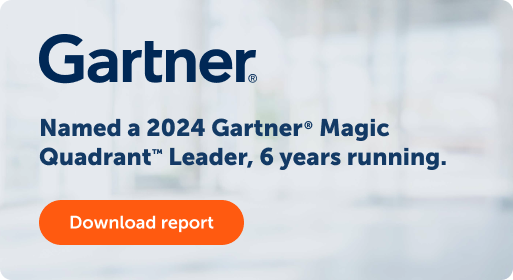- Products
Automate any process, anywhere Streamline complex, mission-critical workflows with the Agentic Process Automation System. Explore the Platform Explore the Platform
- AI System
- Build AI Agents
Automate advanced tasks with AI Agent Studio.
- Streamline workflows
Rapidly design and deploy with Automator AI.
- Process complex documents
Extract and organize data with Document Automation.
- Discover opportunities
Identify inefficiencies with Process Discovery.
- Orchestrate automations
Centralize initiatives with Automation Workspace.
- Build AI Agents
- Automation System
- Govern programs
Establish frameworks and oversight with CoE Manager.
- Automate from any app
Get AI-powered assistance with Automation Co-Pilot.
- Speed workflows with cloud
Power instant data exchange with serverless Automation Anywhere Cloud Service
- Unify systems
Connect applications and workflows with seamless integrations.
- Govern programs
- View all Products
-
- Solutions
Featured Solutions
 Google Cloud Google Cloud and Automation Anywhere empower enterprises to fast-track their AI + Automation journey. Google Cloud
Google Cloud Google Cloud and Automation Anywhere empower enterprises to fast-track their AI + Automation journey. Google Cloud Amazon Web Services Streamline workflows, reduce costs, and make automating even easier when you combine the Agentic Process Automation System with AWS Amazon Web Services
Amazon Web Services Streamline workflows, reduce costs, and make automating even easier when you combine the Agentic Process Automation System with AWS Amazon Web Services- By Industry
- By Function
- By Technology
- View all AI Solutions
-
- Resources
Get Community Edition: Start automating instantly with FREE access to full-featured automation with Cloud Community Edition.
Featured
 Named a 2024 Gartner® Magic Quadrant™ Leader for Automation. Celebrating Six Years of Recognition as a Leader. Download report Download report
Named a 2024 Gartner® Magic Quadrant™ Leader for Automation. Celebrating Six Years of Recognition as a Leader. Download report Download report - Customers
New & improved certifications
 Give yourself a competitive advantage with Automation Anywhere's industry-recognized certifications.Explore Certifications Explore Certifications
Give yourself a competitive advantage with Automation Anywhere's industry-recognized certifications.Explore Certifications Explore Certifications - Company
Get in touch with us Get help, know more, learn, ask questions, or just say Hi! Contact Us Contact Us
- Get To Know Us
- Announcements
- Society
-
Blog
6 Things to Consider When Choosing an RPA Vendor

Robotic Process Automation (RPA) is a software technology that anyone can use to automate manual tasks and business processes. The benefits of RPA are immediately quantifiable, and the technology can have a high impact across every function of the organization. RPA can accelerate processes completions, reduce errors, boost compliance, save audit time and related costs, and free up your staff for higher-value work.
Those are the typical benefits of basic automation. And many RPA vendors can deliver them. But the question is, do you need more than just a basic RPA? Will that solution fit your individual business requirements today? Will it be able to keep up with your needs if you continue—as most businesses do—moving forward with your digital transformation journey? Does it have the ability to handle whatever new business requirements, market technology, and information sources come along?
If your business is like most, you need more. You need an intelligent Digital Workforce solution that can keep up with your business requirements today and support any new digital transformation steps tomorrow. To make sure you’re investing in the right technology—and technology partner—we have outlined six must-haves an RPA vendor should offer to help ensure a safe, productive, successful automation journey.
#1: Deployment flexibility
Let’s say your business has yet to embrace the cloud. You choose an RPA vendor that only offers an on-prem solution, which is good for now. But tomorrow, your leaders decide that the benefits of the cloud—such as anywhere, anytime access and off-site maintenance—make sense and so, you have to start the RPA journey again.
Look for a vendor that offers the widest choice of deployment options: on-prem, cloud, and hybrid. And while you’re at it, make sure that the vendor also offers a solution that can operate on a wide variety of interfaces and with all your applications and legacy systems. It should be code-free, non-disruptive, non-invasive, and easy to deploy.
#2: The highest level of protection
You want to make sure your business meets regulatory compliance regulations and is safe from threat factors. After all, compliance fines can be steep, and every day, businesses are hacked, costing those businesses valuable data as well as revenue and reputation.
For compliance, at a minimum, look for a solution that saves automated workflow data in some type of activity log. That’s a feature included in many RPA solutions.
Where solutions differ is in the level of their protection from cyberattacks. In terms of automation, two types of security come to mind: platform and bot security. Consider an RPA platform that has built-in enterprise-grade security and governance, for example, one that’s SOC 2 Type 1 certified—with multi-layer identification and authentication. It should also cover the bots you create as well as bots created by third parties that you can deploy within your business. A multitiered security framework should be provided to certify the trustworthiness of the bots—with no cybersecurity vulnerabilities in the software. Not every vendor offers that level of security.
#3: Intelligence with AI
Robotic Process Automation can only take you so far to enhance business processes. It needs intelligence in the form of AI to expand its scope and breadth. For example, 80% of data today is unstructured. That includes emails, social media, website content, text messages, word processing, videos, photos, audio recordings, and more. RPA, and even some types of “intelligent automation,” can’t read or analyze that information, rendering it essentially useless for those processes.
Since very few businesses have structured data such as what resides in relational databases, you should look for an RPA vendor with a forward-thinking strategy that focuses on delivering innovative products and services to keep up and even anticipate your needs. It should offer AI as part of the RPA solution to handle all types of data.
But not all vendors are equal in that area. AI is not always natively available across a vendor’s offering. And in many cases, the vendor’s artificial intelligence comes from a third party. Why does that all matter?
A built-in capability has many potential advantages over one that is added in from a third party: optimum performance, compatibility, as well as the ability to scale as you move forward with digital transformation. And don’t forget what is mentioned earlier in this article: native AI can mean better security.
#4: Scalability
Today, you may be considering RPA for one process or one department. If your business is like many, you’ll quickly realize the benefits of RPA and want to scale your bots across your enterprise.
To make the deployment work, choose a vendor with a diverse, expanding portfolio, for example, with solutions for back office and front office—for myriad departments such as finance and accounting and human resources— and one with expertise in a wide variety of industries such as life sciences, manufacturing, financial services, healthcare, public sector, contact center, insurance, and telecom.
The right approach and tools for success
Many automation programs fail to scale beyond the start phase. The reason can include one or a combination of the following—all related to the human element:
- There’s a lack of focus on business users who, by their numbers, represent the greatest resource for accelerating and facilitating automation.
- The program depends on specialist developers who have limited time and resources to drive scaling.
- The people who run the enterprise system, the RPA program managers or the IT administrators, don’t have the tools to do their job efficiently.
Choose an RPA vendor with a platform that focuses on the business user, specialist developer, and RPA manager with solutions created for each. Imagine that platform turning business users into citizen developers who can automate their own processes, eliminating time- and energy-consuming development tasks for the specialist developer, and making workload management easy for the RPA manager. Empowering processes owners to discover automation opportunities and automate their processes will help you scale and get a faster ROI on your investment.
#5: Support
Customer support in the form of expert technology/product assistance, community sharing, and training is essential for a successful RPA deployment. You’ll want an RPA vendor that will be a traveling companion on your entire journey, not just once the proof of concept is completed and the implementation has begun. That vendor should have highly trained customer success managers (CSMs) and 24-hour global support for all customers at all stages in the journey.
The vendor should have a strong, active community of users who can share their real-world experiences and best practices. And customers should be able to take advantage of RPA training opportunities through an extensive, ongoing program that offers courses and learning trails for all levels—introductory to deep dives—and certification programs for the citizen developers and RPA managers. That kind of support can help everyone in your business get the most out of an RPA investment.
#6: Third-party validation
Lastly, don’t forget to check customer reviews and analyst reports to see how your potential candidates measure up. Candid customer feedback about the company’s products, services, and support can be found on peer review sites such as G2 Crowd.
Where does the vendor stand compared to its competitors? Check out industry reviews from companies such as Everest or Gartner.
We hope these six considerations provided you with insights to make the best decision about your automation partner.
See What Automation Anywhere RPA Can Do for You.
About Bertrand Pithioud
Bertrand Pithioud is a member of the global marketing team for Automation Anywhere. He is responsible for strategizing enterprise marketing programs to deliver a holistic digital experience for customers and partners.
Subscribe via Email View All Posts LinkedInGet to know the Agentic Process Automation System.

For Students & Developers
Start automating instantly with FREE access to full-featured automation with Cloud Community Edition.



